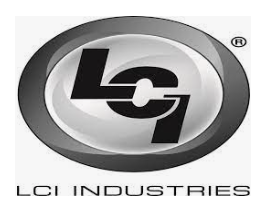MITO Brings Tech to RV World

As a distributor of specialty electronics to RV manufacturers, Elkhart, Ind.- based MITO Corp. offers a multitude of products ranging from backup cameras and navigation systems to audio products and home theater systems specifically designed for mobile applications.
However, unlike some other distribution and supply companies, MITO’s RV SKUs number in the hundreds rather than in the thousands. That’s a deliberate decision, because the company takes a targeted approach to bringing new products to the RV market, according to MITO Corp. President Dan Maloney.
“We try to specialize in niches where we can add value for the end user or the OEM – not necessarily a product that’s going to meet every price point up and down,” he says.
Finding niches in the RV market can require additional legwork. For example, in the late 1990s, Maloney saw potential in a Panasonic product combining an in-dash color LCD screen, a navigation system, a backup camera and an AM/FM radio and CD player in one package.
“We saw that unit and wanted to bring it over here to the U.S., but it was a Japanese unit that had a Japanese tuner, Japanese certification and everything had to be changed,” Maloney says. “It was a major undertaking, but we decided to put a business model together.”
MITO’s management team includes (left to right): Gary Reese, operations manager; Mark Sorocco, sales manager; Mike Stock, CEO; Dan Maloney, president; Melinda Miller, controller; and Rod Hire.
The MITO Corp. team worked with Panasonic until the 1999 roll out of the combined electronics system, which it called the Uncluttered Dash. The product was an immediate success with Class A motorhome manufacturers, such as Monaco Coach, according to Maloney.
“It was the first in-dash video screen available in the United States – bar none. Nobody had them,” he says. “We sold out of that completely for a year.”
WiFiRanger to the Rescue
More recently, the company’s partnership with Meridian, Idaho-based WiFiRanger to distribute the Wi-Fi mobile connectivity product has begun to pick up steam, according to Maloney, who points to an increase in campground Internet access as the primary contributor.
“The problem that we’ve had for maybe four or five years is that the infrastructure for Wi-Fi has been limited, but in the last two years it has just exploded,” he says. “It’s hard to go anywhere where you really don’t have (an Internet connection).”
Like many of the products rolling through MITO’s product pipeline, the WiFiRanger incorporates existing technology into one device in an effort to remedy common campground connectivity issues. The device can automatically switch between the strongest Wi-Fi connection available. It also has the ability to combine a local wireless connection with a cellular data link for faster speeds.
Additionally, the WiFiRanger encrypts data to protect its users’ private information over unsecured local networks. The device features an auto-failover technology, allowing it to sort available Internet connections and access points with preference to bandwidth, connection strength or data usage.
The WiFiRanger has continued to evolve alongside a growing demand in recent years. In 2017, MITO Corp. announced its 40,000th WiFiRanger shipment, and also added or expanded OEM deals with Forest River and Newmar for 2018 models.
“Those are the types of products and innovations that we want to continue to move forward with,” Maloney says. “Finding a space, or creating a space, and developing a product to fill that space and continuing to innovate it.”
Multi-tasking Markets
Since its early days as a distributor for Panasonic, supplying products to diverse markets has served the company well. With influences from the automotive, specialty/ emergency and transit bus industries, MITO Corp. has thrived by bridging the gap between those various industries, according to Maloney.
“The (RV) industry is trying to follow, as far as the chassis and the motorized units, technology coming from automotive – and we’re focusing on bridging that technology into this industry,” he says.
Founded in 1974 in Bristol, Ind., as NAO Industries by Neal Otavi, MITO Corp. initially supplied Panasonic products to the van conversion and RV markets. Growing alongside the industry, the company relocated to Elkhart in the early 1980s, following the company’s acquisition by Tom Fuller and Mike and Gordon Stock.
Since then, MITO Corp. has broadened its scope to include the transit bus and marine markets. Despite roughly 15 percent growth in its RV sales over the past year, Maloney says MITO Corp. continues to branch out.
“We try to diversify a little bit so that we’re not so cyclical with this business,” Maloney says, “We’ve been in it a long time and we’ve seen its ups and downs. When the RV business is in the tanks, it’s hard to do business in this town, so you’ve got to have something else going on to even out the cycles. Hopefully it will never get there again, but I’ve seen it a couple of times.”
Of course, the cross-market influence can benefit the company in good economic times, too. This was the case in 2017, when MITO partnered with Malaysian supplier Pecca to bring aftermarket leather upholstery conversion kits to the automotive and RV industries. The kits allow for a quick upgrade to leather seats with factory-fitted covers.
“It’s working very well for us,” Maloney says. “It’s almost like we’ve got to have a kit for every car out there.”
Like most Elkhart business leaders, Maloney remains vigilant about economic downturns, and notes that the company also supplies audio and visual products to transit and school bus markets, where tax dollars help buffer against future economic downturns. Despite his apprehension, he remains bullish on the RV market.
“Things are looking rosy (in the RV industry) as long as we can continue to keep our interest rates low, and have the availability of fuel,” he says. “If we can do both of those, I think we can have a pretty bullish outlook in the next two or three years, but having lived through two of these recessions, (I know) it shuts off overnight.”
Staying Ahead of the Curve
Since its early days as a distributor for Panasonic, MITO Corp. has relied on markets outside the RV industry to stay ahead of the technology curve, according to Maloney.
“The (RV) industry is trying to follow, as far the chassis and the motorized units, technology coming from the automotive sector – and we’re focusing on bridging that technology into this industry,” he says.
Among the best examples of this auto-RV crossover is the ongoing development of autonomous and computer-assisted driving features in the automobile industry. Features such as lane departure warning and blind-spot detection have become increasingly ubiquitous in the automotive industry and will become increasingly common in the RV market moving forward, according to Maloney.
“We know what’s coming in five years,” he says. “We’re talking about automated or autonomous vehicles, and as we speak, autonomous braking and adaptive cruise control.”
By comparison, automobile makers move increasingly close to driverless vehicles. In January, GM’s Cruise division petitioned the government for permission to mass produce a test vehicle without a steering wheel by 2019.
In cases such as these, the automotive market serves as a proof of concept and advances development, but it stops short of delivering a finished product to RV OEMs, according to Maloney.
For example, a blind spot warning system for a Class A motorhome would include the same essential hardware and software that is used in today’s low-profile sedans, but would obviously require some special considerations that account for size, speed and maneuverability differences (among others) between the two vehicles, Maloney says.
“They do work,” he says. “But it’s a little tougher to adapt than just an aftermarket off-the-shelf sensor system.
“There are a lot of vendors out there, but it does take developmental time. You need a partner who is going to commit to use what you’re building, so it’s all about partnerships now with big contracts, long-term agreement, and putting together a business plan that’s going to last at least three to four years.”
MITO Corp. looks forward to being at the forefront of offering such technologies as they become viable for the RV industry, according to Maloney.
Meanwhile, Maloney says MITO Corp., in collaboration with an electronics supplier, expects to debut a new pair of radios later this year, but he held off on releasing specific details, citing the ongoing development and rollout.
In the past year, MITO Corp. has made a number of leadership changes. These have included promoting Maloney to his new role as MITO Corp. president, hiring Mark Sorocco as OEM sales manager, and promoting Rod Hire to vice president of product development. Additionally, Melinda Miller was promoted to controller and Gary Reese became the new operations manager.
Also, MITO Corp. recently updated its facilities to meet the ISO 9001:2015 standards and received certification in late March.
“These changes position us for new opportunities moving forward,” Maloney says. “We’re gearing up for the future.”



